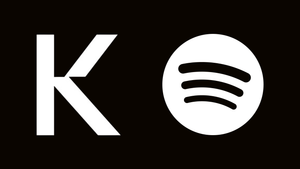Kobalt has entered into a direct licensing deal with Spotify in the US, following the lead of the Universal and Warner music publishing companies.
It means all three music publishers are now paid the mechanical royalties they are due on US-streamed tracks on Spotify at their directly contracted rates rather than at the rate set by the compulsory licence that covers mechanical rights in the US.
The new direct deals follow the controversy sparked by Spotify taking advantage of a bundling discount available as part of the compulsory licence, which allows it to reduce what it has to pay songwriters and publishers. It started applying that discount after adding audiobooks to its premium subscription offering.
The direct-licensing agreements also come as Spotify looks to introduce more content and functionality that is not covered by the compulsory licence.
Announcing the Kobalt/Spotify deal, the two companies say the new agreement “reflects their collaborative efforts” to build a licensing framework that enables “new formats, innovations and potential to connect creators and fans alike”.
It also reflects “a broader shift toward licensing structures that allow songwriters to participate more directly in the value their work creates on streaming platforms”. Although quite how that shift is occurring isn’t explained in the big announcement of the new deal.
Spotify Chief Business Officer Alex Norström is also vague about the specifics of the new arrangement, but nevertheless insists it “boosts our support of songwriters through a licensing model that unlocks new growth and will expand the way music is made and shared today”.
Kobalt CEO Laurent Hubert says the deal “reaffirms our unwavering commitment to ensuring our songwriters are paid fairly for their work and underscores the importance of progressive licensing models that reflect the real-world use of music across digital platforms”.
That said, while the deal is “a step in the right direction”, Hubert suggests there is more work to be done in getting songwriters everything they are due, adding, “we look forward to continuing to work with Spotify to increase the value of songwriter royalties”.
The licensing of song rights for streaming works differently in the US to most other countries.
The performing rights in songs are usually licensed by the collecting societies, including BMI and ASCAP. The separate mechanical rights are then covered by the compulsory licence with rates set by the Copyright Royalty Board and payments managed by The MLC.
Under US copyright law, publishers and songwriters are obliged to allow their works to be used under the compulsory licence, but the users of music - like streaming services - aren’t obliged to use said licence, and can instead seek direct deals with the music industry.
But they are only going to do so if they can negotiate something better than what is available in the compulsory licence, whether that’s a better rate, a better admin set-up or some other benefits.
Prior to the creation of The MLC in 2019, when the payment of royalties under the compulsory licence was somewhat chaotic, Spotify did have direct deals with some publishers, mainly to make the admin easier, and that included Kobalt. But since the creation of The MLC, it’s generally been easier for Spotify to rely on the compulsory licensing system.
But its use of the compulsory licence has been controversial of late because of its employment of the bundling discount, which Spotify started applying to what it pays writers and publishers after adding audiobooks to its main subscription product. Because, it argues, that makes Spotify Premium a music + audiobooks bundle.
While the bundling controversy has resulted in litigation and lobbying to try to stop Spotify employing the bundle discount - or to change the law so that publishers can opt out of the compulsory licence - the big publishers have also been busy negotiating these direct deals.
Spotify isn’t going to voluntarily do a direct deal that just removes the controversial bundling discount, but it does need to secure additional rights from the publishers that are not covered by the compulsory licence, for things like non-music content and a planned remix tool.
Which means there’s a deal to be done where both sides feel like they’re gaining something better than what the compulsory licence provides.
With direct deals now in place with Kobalt, Warner and Universal, it’s thought negotiations are ongoing between Spotify and the biggest music publisher, Sony Music Publishing.

